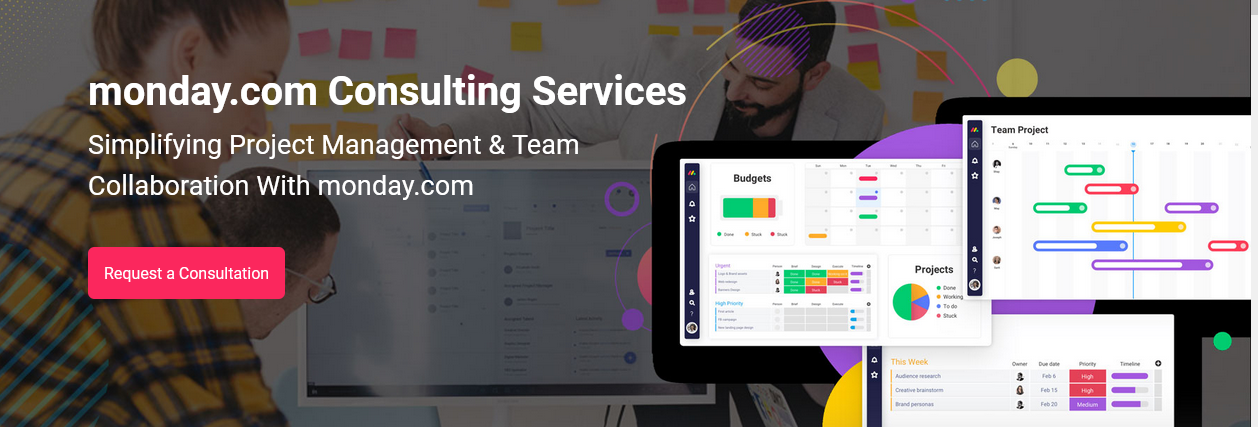In the dynamic landscape of contemporary project management, where digital tools play a pivotal role in orchestrating tasks and fostering collaboration, the integration of robust cybersecurity practices has emerged as an undeniable necessity. Among the myriad project management platforms, monday.com stands out as a versatile and powerful tool that empowers teams to streamline workflows, enhance communication, and achieve project objectives efficiently. However, as organizations increasingly rely on such platforms to manage sensitive information and critical processes, the imperative to fortify project management tools with cybersecurity measures becomes paramount.
The ubiquity of cyber threats in today’s interconnected world poses a constant risk to organizational data integrity, confidentiality, and overall project success. The incorporation of cybersecurity practices in monday.com is not merely an optional enhancement but an essential safeguard against potential breaches, data leaks, and unauthorized access.
The Role of monday.com Consultants in Cybersecurity Incorporation
monday.com consultants are not merely implementers of a project management tool; they are guardians of data sanctity, entrusted with the responsibility of securing sensitive information, mitigating risks, and fortifying digital infrastructures. The intricate nature of cybersecurity requires a nuanced understanding of both technological landscapes and the specific functionalities of project management tools. monday.com consultants, with their specialized knowledge and hands-on experience, serve as the linchpin in this endeavor.
The specific tasks undertaken by monday.com consultants in the realm of cybersecurity include:
- Conducting comprehensive risk assessments
- Implementing encryption protocols
- Educating users on security best practices
By embodying the ethos of both project management and cybersecurity, these consultants play a crucial role in ensuring that monday.com is not just a facilitator of efficient workflows but a bastion of digital resilience.
Cybersecurity Best Practices Followed by monday.com Experts
1. User Authentication and Access Control
One of the foundational pillars of cybersecurity within monday.com is robust user authentication. monday.com experts ensure that strong, unique passwords are enforced, and consider implementing multi-factor authentication (MFA). This adds an extra layer of defense against unauthorized access. Additionally, they carefully define user roles and permissions, granting access only to the necessary features and data for each team member.
2. Data Encryption
Encrypting data in transit and at rest is non-negotiable for ensuring the confidentiality and integrity of information. monday.com supports secure data transmission through HTTPS. For an extra layer of protection, experts leverage encryption protocols to safeguard data stored within the platform, making it significantly more challenging for unauthorized entities to compromise sensitive information.
3. Regular Security Audits and Updates
Stay ahead of potential vulnerabilities by conducting regular security audits. monday.com frequently releases updates and patches to address security concerns and improve overall system resilience. Accordingly, monday.com specialists ensure that the platform is up-to-date with the latest security patches and features to benefit from ongoing enhancements and protections.
4. Employee Training and Awareness
According to research, 95% of cybersecurity incidents happen during project management due to human errors. Specialists empower teams with thorough training on security best practices and raise awareness about potential threats such as phishing attacks. An informed and vigilant workforce is a crucial line of defense against cyber threats.
5. Integration with Identity and Access Management (IAM) Systems
Enhance security by integrating monday.com with Identity and Access Management systems. This integration ensures that user access is centralized, streamlined, and aligns with the organization’s broader security policies. It also streamlines tenant offboarding and onboarding activities.
6. Regular Backups
Consultants protect data against potential loss or ransomware attacks by implementing regular backups. monday.com provides features for data export, ensuring that critical information is stored securely and can be restored in the event of an unforeseen incident.
7. Incident Response Plan
Despite proactive measures, having an incident response plan is crucial. For that, experts establish a clear protocol for identifying, responding to, and mitigating security incidents. Ensure that the project team is well-versed in these procedures to minimize the impact of any potential breaches.
Understanding monday.com Security Basics
It is imperative for enterprises to implement the cybersecurity best practices mentioned above. But monday.com users should also understand what their Cloud provider safeguards before taking action. Since there are many security mechanisms available intuitively, business users no need to build those from scratch. Users should be aware of features available within the platform before outsourcing cybersecurity implementation to monday.com consulting companies.
Client-Side Security Features:
- User Authentication – monday.com provides secure user authentication mechanisms, including username and password authentication. It also supports integration with external authentication systems such as LDAP, Active Directory, and SAML.
- Session Management – monday.com allows administrators to configure session timeout settings to automatically log users out after a specified period of inactivity, enhancing security by reducing the risk of unauthorized access due to inactive sessions.
- Cross-Site Scripting (XSS) Protection – monday.com can be configured with Content Security Policy headers to mitigate the risk of cross-site scripting attacks. CSP helps control which resources can be loaded and executed based on specified policies.
- Role-based Access Controls – monday.com allows administrators to define roles and assign specific permissions to these roles, controlling access to various features and actions within the application.
Internal Security Features:
- Project Permissions – JIRA allows administrators to set project-specific permissions, determining who can view, create, edit, or transition issues within a particular project. This granular control helps tailor access to project-related data.
- Data Center Security Features – For large-scale deployments, monday.com Data Center provides additional features like node encryption, disaster recovery options, and improved performance, enhancing the overall security and reliability of the system.
- Data Encryption – Encryption of sensitive data at rest ensures that data stored in databases or on disk is protected from unauthorized access
- Audit Logging – monday.com provides audit logs that record various system events, including user logins, configuration changes, and issue updates. These entries are crucial for tracking and examining security events.
Summing Up
As monday.com continues to empower organizations with streamlined project management, incorporating robust cybersecurity practices is not just a choice but a necessity. By implementing these best practices, you not only safeguard your digital workspace but also bolster the overall resilience of your organization in the face of evolving cyber threats. Remember, a secure monday.com environment is the foundation upon which your success and productivity thrive.







